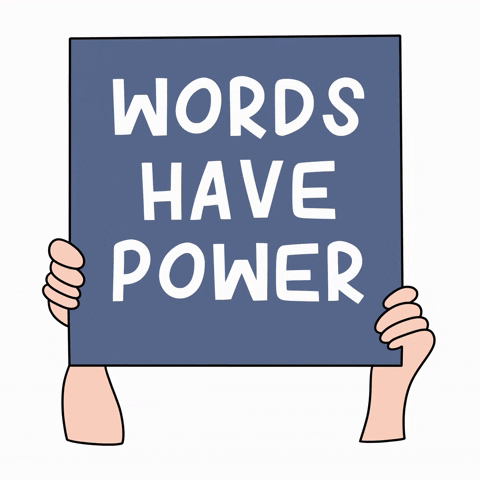Everyone should feel included and heard as we strive to build more unity throughout the world. And that goes the same for the workplace.
It's a diverse environment where you constantly interact with people of different backgrounds, races, religions, sexual orientations, and many other dimensions of diversity.
Increasing your awareness and use of inclusive language will have a positive impact on the people you work with.

Why Is Inclusive Language Important?
 What does inclusive language mean?
What does inclusive language mean?
Words and statements that aim to treat all people equally, without causing offense
Avoiding expressing or implying ideas that are sexist, racist, or otherwise biased, prejudiced, or critical towards any particular group of people
 How does it affect the workplace?
How does it affect the workplace?
It makes the environment more comfortable in the long term.
It might be challenging for people to adopt in the short term, as they might feel nervous about the "right way" to phrase their words.
You need to actively promote and practice it if you want it to become a regular part of your workplace's culture.
How To Spot Non-Inclusive Language
Even if it's unintentional, some coworkers may lack of awareness or exposure to diversity and inclusion practices which can do harm.
Some examples of non-inclusive language in the workplace to look out for:
Gender-based
not using people's preferred pronouns, or defaulting to "he/she" over "they"
using gendered adjectives to describe people differently
Ron is such a decisive leader! He's way better than Marina. She was so aggressive.
Heteronormative
any language that assumes or implies someone has heterosexual preferences
recognizing only traditional family structures
We hope everyone will enjoy some time with their husbands, wives, and children over the holidays!
Racial/Ethnic
attributing positive and/or negative stereotypes to people based on their race or ethnicity
Let's get the Hong Kong office to do this, Asians have the best work ethic.
Ableist
any language that stigmatizes people with physical disabilities or mental health concerns
I think the software engineers forgot to take their meds this week.
Quiz
When speaking to someone who self-identifies as male, how should you ask about their relationship status?
How To React Professionally
Responding politely and professionally to potentially offensive language will give people enough time and support to adopt "new" ways of speaking.
How you respond will depend on whether your colleagues are making honest mistakes or deliberately pushing the envelope.
 Gentle Approach
Gentle Approach
A gentle reminder or correction, without judgment, will help nudge your coworkers towards more inclusive language.
For example, when someone misgenders a non-binary colleague by mistake, you can say:
I believe Sander prefers to be called 'they'. Can you remember that for next time? It'd help them feel more comfortable.
 Assertive Approach
Assertive Approach
Referring to your workplace's rules and regulations will remind your coworkers of their professional responsibilities.
For example, when your colleagues tell sexist jokes in a common space, you can say:
I'd appreciate it if you kept these jokes out of the office. They go against our code of conduct and I find them offensive.
Quiz
You identify as female. At a client meeting, your teammate introduces you as "lovely and talented". You know they didn't mean it to be offensive but you're not comfortable with that description. How should you respond?
Subscribe for more quick bites of learning delivered to your inbox.
Unsubscribe anytime. No spam. 🙂
How To Be Proactive
Reflect on your own language and behavior, then lead by example!
💬 Do you use non-inclusive words?
Start replacing them with more inclusive ones ("Hi, everyone!" instead of "Hey, guys!").
🤨 How do you react to correction?
The next time someone corrects your language, apologize for the slip-up, thank them, and commit to using more appropriate language in the future.
⚧️ Are you unsure about pronouns?
When in doubt, ask someone how they'd like to be referred to. Put your own pronouns in your email signature and name tag, and encourage others to do the same.
✊ Do you stand up for your coworkers?
If you see incidents of inappropriate or non-inclusive language, approach your HR department with your concerns.
Take Action
If you use and reinforce inclusive language, your coworkers and clients will feel recognized.
Show them that you understand the importance of inclusivity and recognize the value of their presence in your workplace.
To lead by example:
Your feedback matters to us.
This Byte helped me better understand the topic.